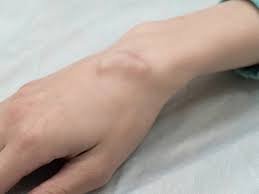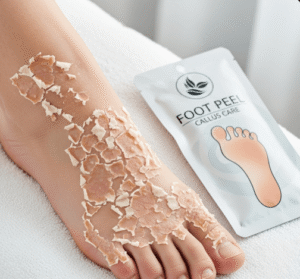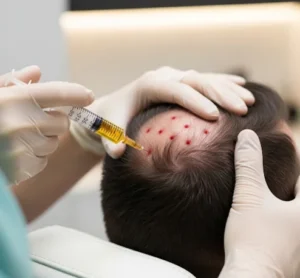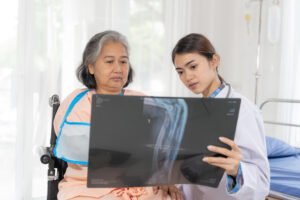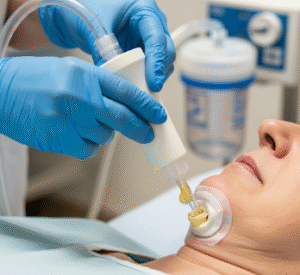Overview
A desmoid tumor, also called aggressive fibromatosis, is a rare, non-cancerous but locally aggressive tumor that arises from connective tissues. In Korea, treatment is provided at specialized oncology and surgical centers, where multidisciplinary approaches aim to control tumor growth and minimize recurrence.
What is a Desmoid Tumor?
Desmoid tumors are fibrous tissue growths that do not metastasize but can invade nearby muscles, nerves, and organs. They are classified as benign soft tissue tumors but can be challenging due to their high recurrence rate after surgical removal.
Symptoms
- Firm, painless lump or mass
- Swelling in affected area
- Pain or tenderness if tumor compresses nerves
- Limited mobility or discomfort in adjacent joints or muscles
- Gradual increase in size over months
Causes
- Mutations in the CTNNB1 gene or APC gene (associated with familial adenomatous polyposis)
- Hormonal influences, particularly estrogen
- Physical trauma or surgical scars may trigger tumor development
- Exact cause often unknown
Risk Factors
- Genetic predisposition (e.g., familial adenomatous polyposis, FAP)
- Women of reproductive age
- History of trauma or surgical intervention in affected area
- Hormonal exposure (estrogen-related)
Complications
- Local tissue invasion and compression of nerves or organs
- Recurrence after treatment
- Functional impairment depending on tumor location
- Psychological impact due to visible or symptomatic tumors
Prevention
- No guaranteed prevention
- Regular monitoring for individuals with genetic risk factors
- Early detection of new lumps for timely intervention
Treatment Options in Korea
- Diagnosis
- Physical examination and imaging (MRI, CT)
- Biopsy for histopathological confirmation
- Genetic testing in cases of familial predisposition
- Medical Treatments
- Surgery with wide margins to remove the tumor
- Targeted therapy (e.g., tyrosine kinase inhibitors) in unresectable or recurrent cases
- Hormonal therapy (tamoxifen) in select cases
- Radiotherapy for inoperable tumors or recurrence
- Rehabilitation & Support
- Physical therapy to maintain function
- Pain management and post-surgical care
- Psychological support for patients coping with chronic tumors

